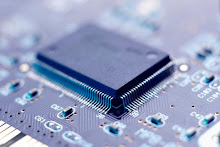I use Ubuntu on all my personal computers and I even recommend it to friends. I am starting to think maybe I shouldn't though, because it is obvious:
Ubuntu is harder to use than Windows

Don't believe me? Read through a few of these comparisons below and I think it will be obvious which operating system is more "user friendly".
Installing Software:To install a piece of software on Windows you just follow a few easy steps. First you go to the store and buy the software, then you pop the CD into your disc drive, enter the CD key, wait for the software to install itself onto the hard drive, and you are good to go! Be sure to put the CD and key in a safe place in case you ever need to reinstall the software.
On Ubuntu to install a piece of software you open the software center. Type in the name of the software you are looking for (or browse by category), click install, and wait for the software to download and install.
Default Software:Windows offers a fantastic default software install. Need to write a paper? No worries, Windows has the feature-rich Wordpad. Want to surf the net? Internet Explorer has always provided a
safe webrowsing experience.
Ubuntu's default software selection is somewhat disappointing. It has a full featured word processor, spreadsheet editor, and presentation creator. I know most people don't use facebook or twitter, but just in case you do Ubuntu includes Gwibber, a software that fully integrates your social networking with your desktop. For webrowsing Ubuntu only has Firefox and if you want to instant message Ubuntu's Empathy only supports facebook, AIM, yahoo, MSN, IRC...
Adding Hardware:Windows is the most popular operating system in the world. Almost any piece of hardware you purchase comes with a handy CD for installing the drivers the hardware needs to function properly. Again, keep that CD in a safe place in case you ever reformat or attach the hardware to a different computer.
If you have one of the millions of pieces of hardware that is supported on the Linux platform then 99 times out of 100 once you attach it to your computer it still start functioning right away. What about that hundredth time? Ubuntu will offer to automatically download and install any closed source drivers the hardware needs to function.
System Upkeep:Upkeep on Windows is easy. Just remember to periodically run your anti-virus program, your anti-spyware program, and don't forget to defragment your computer every couple months. Also a yearly reformat tends to help keep things running smoothly.
Ubuntu? Well there aren't really any viruses for Ubuntu and the filesystem it uses doesn't fragment nearly as much as NTFS does.
Updating the Operating System:To ensure your operating system is secure, by default, whenever Windows is connected to the internet it will automatically download and install updates without asking. Windows is very through with it's update process. As soon as it is finished updating the system will shutdown, install some more updates, and then possibly install the last bit of the updates and apply configurations the next time the computer boots up.
Ubuntu on the other hand tends to be kind of lazy by default with it's update process. When a new update is available the system
asks you if you want to download and install it. Then, it only installs the updates once. I guess Ubuntu just
assumes it installed them correctly the first time.
I think I covered all the points that I often hear people complain about when they first start using Ubuntu. Anyone else know of other areas where Ubuntu is still harder to use than Windows?
In case the point (and my reeking sarcasm) where not conveyed to you in the above paragraphs, my point is this. Ubuntu/Linux really is not any harder to use than Windows is these days. In fact, in many respects it is simply different (in a good way) than what a Windows user is used to. I am tired of hearing from people who try to use Ubuntu for all of two seconds that it is "too hard" to use, because obviously - they aren't really giving it a chance.
~Jeff Hoogland

